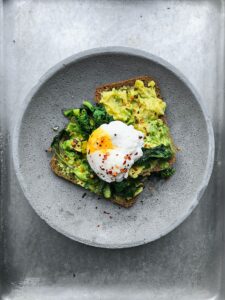By Fatima Malik
There have been several studies on the effects of nutrition on ADHD symptoms.
These studies found no evidence that diet caused ADHD; however, they found that changing the diet improved symptoms in some cases.
Of course, the research on the effects of food on ADHD symptoms is still ongoing and not conclusive at this time, but as mentioned, improvements have been observed.
What is ADHD?
ADHD (Attention Deficit Hyperactivity Disorder) is a neurodevelopment disorder most commonly diagnosed in children.
ADHD is believed to originate from low levels of dopamine and noradrenaline in the part of the brain responsible for self-regulation.
Most adults with ADHD commonly complain of the constant anxiety that seems to be sitting at the center of their chest.
Children with ADHD most likely feel the same but cannot explain it properly until they are old enough to understand what ‘anxiety’ is. Therefore it is likely that these children suffer in silence, unsure of how to express themselves and sometimes express themselves in the form of disruptive behaviours.
ADHD symptoms are treated with a combination of behavioural and medicinal techniques.
At Positive Kids, we believe in a holistic approach to ADHD treatment (LEPS Model), which is why we have sessions for both children and their parents so all of us can tackle ADHD together and the children do not need to feel alone or misunderstood.
Nutrition and ADHD (behaviour)
We all know, regardless of ADHD, that there are foods that change moods and affect behaviour.
For example, caffeine can increase alertness, chocolate can alter moods, alcohol can affect behaviour, sugar can cause a spike in energy with an equally big crash, and high protein meals like steak can make you sleepy.
In the same way, nutritional deficiencies can cause changes in behaviour as well.
One study showed that the intake of supplements, like essential fatty acids, vitamins and minerals, caused a reduction in antisocial behaviour in children with ADHD.
ADHD diets have not been researched a lot, but many health experts think that any food that is good for the brain would likely be suitable for a brain with ADHD.
What foods are good for the ADHD brain?

- High protein diets: For before and after school, for example, eggs, meats, beans, nuts, cheese can be excellent sources of protein. Having protein in the morning and after school could improve concentration and could make ADHD medications work longer.
- Good carbs (complex): Having good carbohydrates, like vegetables and fruits (oranges, pears, apples, grapefruit, kiwi) in the evening can improve sleep.
- Omega-3 fatty acids: Most cold-water white fish (tuna, salmon etc.), are a good source of omega-3 fatty acids, including some oils, like olive oil and nuts, like walnuts.
What foods should you avoid?
(Three guess what this list contains)
You guessed it, all the foods you already know are bad for you are the ones you should avoid and some others:
- Candy
- Corn syrup
- Honey
- Sugar
- Foods made from white flour
- White rice
- Potatoes (without the skins)
As you can see, sugar is the main one. Some experts recommend avoiding artificial colours, food additives like MSG, nitrites, and, if possible, preservatives.
Based on some studies, healthy diets can help with your child’s ADHD symptoms, and by incorporating them into your routine, you can help them establish good nutrition habits into adulthood.
At Positive Kids, we have expert nutritionists to help guide you towards a better diet for your child and your family, from meal preps to grocery shopping to ordering at restaurants.
We’re here to help.
Call us: 1- 866-503-7454

